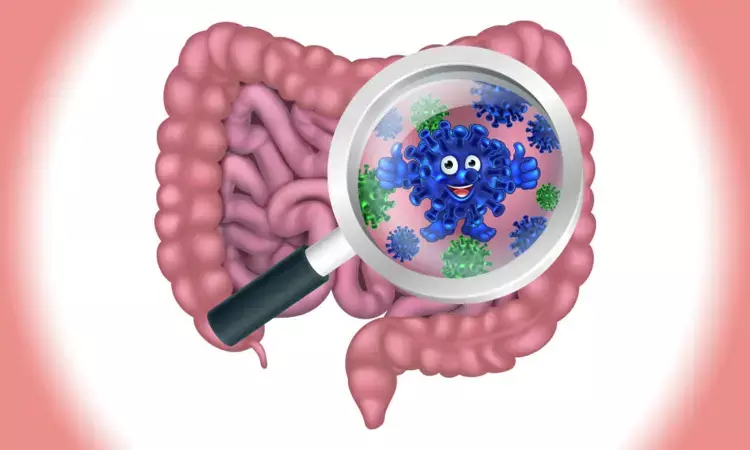- Home
- Medical news & Guidelines
- Anesthesiology
- Cardiology and CTVS
- Critical Care
- Dentistry
- Dermatology
- Diabetes and Endocrinology
- ENT
- Gastroenterology
- Medicine
- Nephrology
- Neurology
- Obstretics-Gynaecology
- Oncology
- Ophthalmology
- Orthopaedics
- Pediatrics-Neonatology
- Psychiatry
- Pulmonology
- Radiology
- Surgery
- Urology
- Laboratory Medicine
- Diet
- Nursing
- Paramedical
- Physiotherapy
- Health news
- Fact Check
- Bone Health Fact Check
- Brain Health Fact Check
- Cancer Related Fact Check
- Child Care Fact Check
- Dental and oral health fact check
- Diabetes and metabolic health fact check
- Diet and Nutrition Fact Check
- Eye and ENT Care Fact Check
- Fitness fact check
- Gut health fact check
- Heart health fact check
- Kidney health fact check
- Medical education fact check
- Men's health fact check
- Respiratory fact check
- Skin and hair care fact check
- Vaccine and Immunization fact check
- Women's health fact check
- AYUSH
- State News
- Andaman and Nicobar Islands
- Andhra Pradesh
- Arunachal Pradesh
- Assam
- Bihar
- Chandigarh
- Chattisgarh
- Dadra and Nagar Haveli
- Daman and Diu
- Delhi
- Goa
- Gujarat
- Haryana
- Himachal Pradesh
- Jammu & Kashmir
- Jharkhand
- Karnataka
- Kerala
- Ladakh
- Lakshadweep
- Madhya Pradesh
- Maharashtra
- Manipur
- Meghalaya
- Mizoram
- Nagaland
- Odisha
- Puducherry
- Punjab
- Rajasthan
- Sikkim
- Tamil Nadu
- Telangana
- Tripura
- Uttar Pradesh
- Uttrakhand
- West Bengal
- Medical Education
- Industry
Bacteroides-dominant gut microbiome linked to better neurodevelopment in boys: Study

The study offers early promise as a way to potentially identify children at risk of neurodevelopmental disorders.
Canada: Boys with a high gut composition of the bacteria Bacteroidetes at one year of age are more likely to have more advanced cognition and language skills one year later, reveals a study conducted on 400 infants from the CHILD Cohort Study (CHILD). The positive association between Bacteroidetes gut microbiota in late infancy and subsequent neurodevelopment was specific to male children.
Bacteroidetes are one of a very few bacteria that produce metabolites called sphingolipids, which are instrumental for the formation and structure of neurons in the brain.
The results of the study, led by researchers from the University of Alberta in Canada, are published in the journal Gut Microbes.
"It's well known that female children score higher (at early ages), especially in cognition and language," said Anita Kozyrskyj, a professor of pediatrics at the U of A and principal investigator of the SyMBIOTA (Synergy in Microbiota) laboratory. "But when it comes to gut microbial composition, it was the male infants where we saw this obvious connection between the Bacteroidetes and the improved scores."
"The differences between male and female gut microbiota are very subtle, but we do know from CHILD Cohort Study data that girls at early ages are more likely to have more of these Bacteroidetes. So perhaps most girls have a sufficient number of Bacteroidetes and that's why they have improved scores over boys," added Kozyrskyj.
The researchers, led by Kozyrskyj and associate professor of pediatrics Piush Mandhane, studied bacteria found in fecal samples from the infants and identified three different groups exhibiting similar dominant clusters of bacteria. They then evaluated the infants on a variety of neural developmental scales. Of those groups, only the male infants with Bacteroidetes-dominant bacteria showed signs of enhanced neurodevelopment.
The research replicates similar findings from a U.S. study that also showed an association between Bacteroidetes and neural development.
"It makes sense that if you have more of these microbes and they produce more sphingolipids, then you should see some improvement in terms of the formation of neuron connections in our brain and improved scores in cognition and language," she said.
According to Kozyrskyj, cesarean birth is one factor that can significantly deplete Bacteroidetes. Factors that positively influence gut microbiota composition in infants include breastfeeding, having a high-fiber diet, living with a dog, and being exposed to nature and green spaces.
While the findings don't necessarily mean children with a lower proportion of Bacteroidetes will remain behind their peers in later childhood or adulthood, the researchers believe the study offers early promise as a way to potentially identify children at risk of neurodevelopmental disorders.
The team will continue to follow the infants participating in CHILD to determine whether the findings can be predictive of autism or attention-deficit/hyperactivity disorder. Moving forward, the researchers are also examining several other factors that may have an impact on neurodevelopment in infants, including stress and gut colonization by the bacterium Clostridium difficile.
"Over the first one to two years of life, your brain is very malleable," said Kozyrskyj. "Now we're seeing a connection between its malleability and gut microbiota, and I think that is very important."
Reference:
The study titled, "Bacteroides-dominant gut microbiome of late infancy is associated with enhanced neurodevelopment," is published in the journal Gut Microbes.
DOI: https://www.tandfonline.com/doi/full/10.1080/19490976.2021.1930875
Hina Zahid Joined Medical Dialogue in 2017 with a passion to work as a Reporter. She coordinates with various national and international journals and association and covers all the stories related to Medical guidelines, Medical Journals, rare medical surgeries as well as all the updates in the medical field. Email: editorial@medicaldialogues.in. Contact no. 011-43720751
Dr Kamal Kant Kohli-MBBS, DTCD- a chest specialist with more than 30 years of practice and a flair for writing clinical articles, Dr Kamal Kant Kohli joined Medical Dialogues as a Chief Editor of Medical News. Besides writing articles, as an editor, he proofreads and verifies all the medical content published on Medical Dialogues including those coming from journals, studies,medical conferences,guidelines etc. Email: drkohli@medicaldialogues.in. Contact no. 011-43720751


